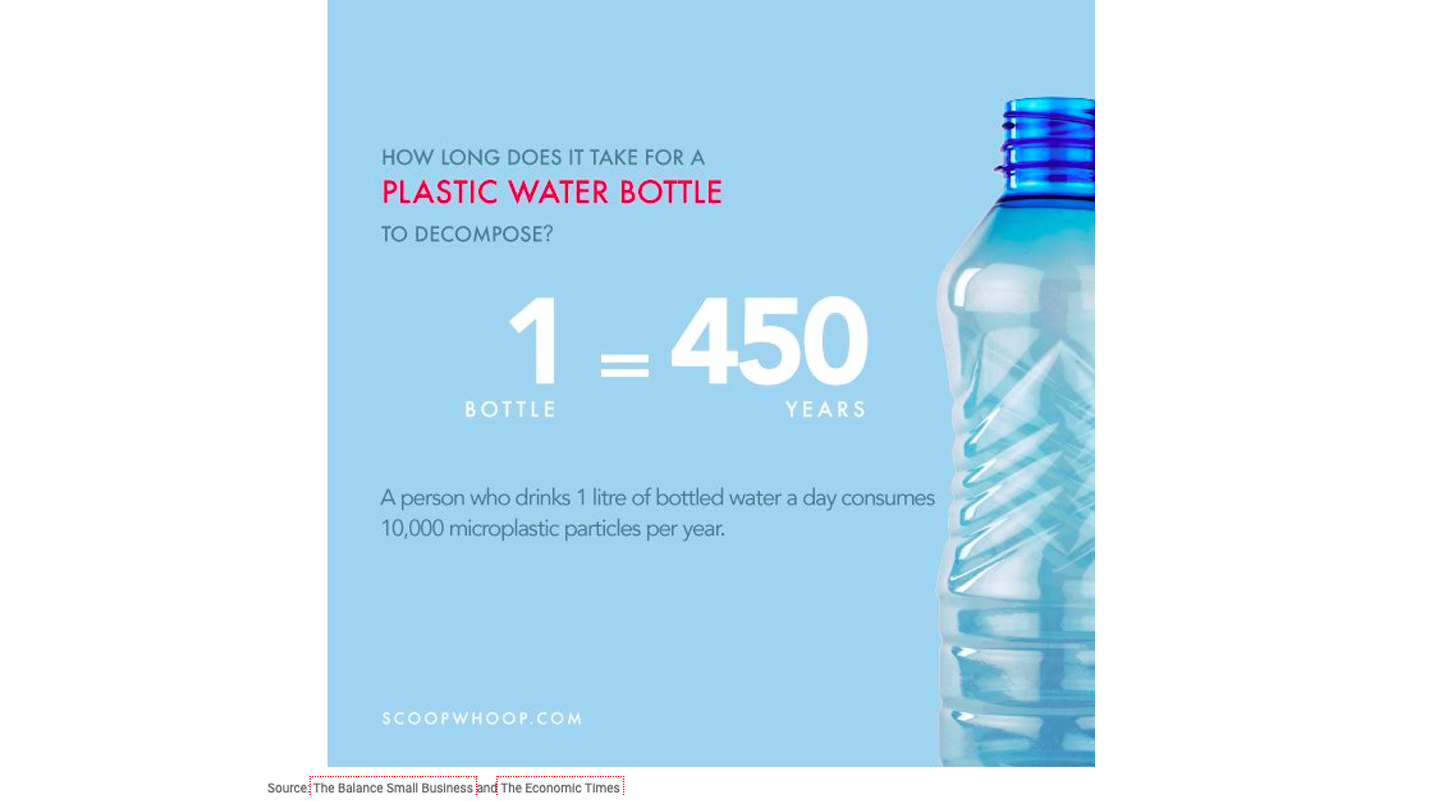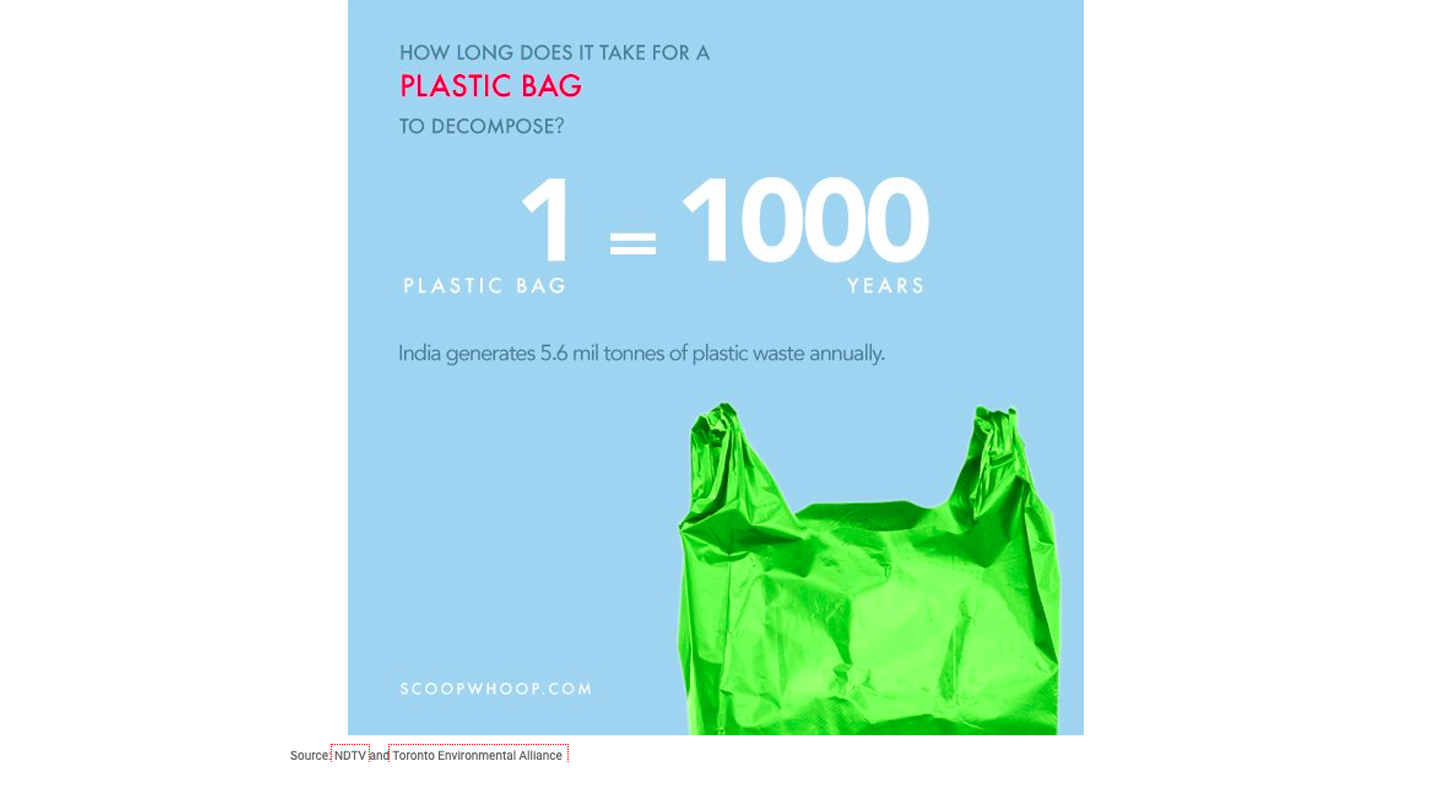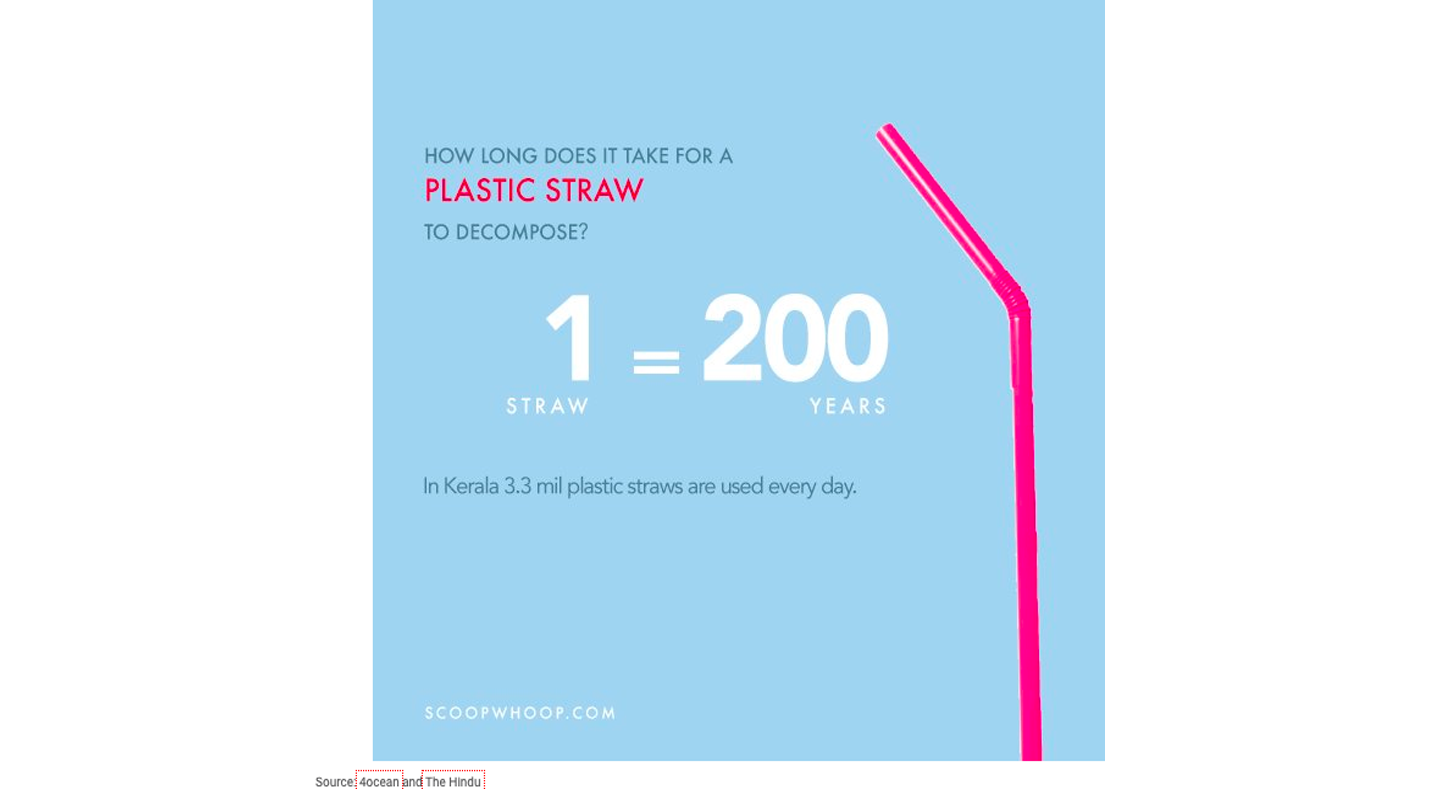How long does it take plastic to decompose – longer than you think
How long does it take plastic to decompose?
To be completely frank, that’s a difficult question. Modern plastic has really only been in production for about 50 years. But a lot of those plastics are still floating around the world today. The lifetime of single-use plastics varies from product to product, but this article aims to give a ballpark range for single-use products like plastic water bottles, plastic bags, and plastic straws.
What is plastic?
The first synthetic plastics were developed in early 1907. What gives plastic its strength and flexibility is the length of the molecule chains from the polymers that make plastic. The longer each chain of molecules, the stronger, more lightweight and flexible the plastic will be. When petroleum and fossil fuels were shown to produce longer chain polymers this then began the shift from natural to synthetic plastics.
Why is plastic bad?
Nowadays the majority of plastics used every day are made of polyethylene terephthalate (PET), which is a petroleum-based synthetic plastic.
What’s the harm in that you ask? Well, you know the stuff you put in your car that makes your car go? That’s made out of petroleum too and we all know how bad that is for the environment. So think about how bad that effects our landfills, oceans, and the world as a whole. Probably not the best remedy.
With most plastic being primarily petroleum-based for its strength, it also means that the majority of plastics won’t through biodegradation like natural products. Meaning it’s pretty damn tough to get rid of the stuff because it lives on this planet for quite some time.
How long does it take a plastic bottle to decompose?
No question about it, plastic is pretty bad and is made of some questionable materials that harm the planet. So, how long does this plastic stuff stick around for? Well, according to some researchers, they estimate that due to the PET used in objects like plastic bags, plastic water bottles and plastic straws, it could take upwards of 450 years to decompose.
Yep, a rather frightening estimation. Let’s break that down so it really hits home for you. Breaking that down is equivalent to 5,400 months, or 21,600 weeks, or 1,971,000 days just for one single plastic bottle to decompose. Now think about how many plastic water bottles are on this planet. Probably not so thirsty anymore now, are you? Check out some alternatives here.

How long does it take a plastic bag to decompose?
So, what about plastic bags, how long do they take to decompose?
Answer: between 10 and 1,000 years.
This is a rather frustrating statistic. If it takes 1,000, that’s concerning. But if it takes only 10 years, that’s not so bad– is it?
Guess again. It all depends on how much ultraviolet radiation a plastic bag gets from the sun. If it’s baking in the sun, the bag could break down a lot sooner (i.e., 10 years) than a plastic bag that’s hidden from the sun (i.e., 1,000 years).
Even if it takes 10 years, this is still concerning. Polyethylene in plastic bags does not biodegrade. It simply becomes brittle, causing the bag to break down into tiny plastic pieces. In other words, there may not be a plastic bag floating in the wind or oceans. Instead, there are now tiny microplastics being scattered around the world.
To fix this, maybe it would be best to go back to paper bags for our shopping needs. The alternatives are endless. You can find more great, simple options here.

How long does it take a plastic straw to decompose?
What was once the most convenient tool is now going through a shift for being one of the most hated plastic products – plastic straws.
It will take approximately 200 years for a plastic straw to decompose. Much longer than the time they have been in modern existence.
So, what can we do? Well, continuing to throw our plastic straws into the garbage would be a step in the opposite direction since they’re not easily recyclable due to their size. For starters, I would suggest alternatives. There are always alternatives, like stainless steel, paper, or biodegradable straws. Better yet, don’t use a straw at all! or just go without a straw. Go cold turkey on the drinking apparatus!

What impact does recyclable plastics having on this situation?
Scattered around this plastic world, 12 million tonnes of plastic waste and materials end up in the oceans each year moving us closer and closer to the plastic world we are trying to escape from. We need to be better.
Right now, we as Canadians recycle only 11% of all plastics with the other 89% being tossed into our landfills, oceans and or being incinerated into harmful fumes. Recyclable plastics can drastically change this statistic by removing all these harsh plastics from the environment and utilizing them to make others. If done correctly, those plastic grocery bags can be made and remade into the same bags or other plastic products instead of spending the next hundred years in a landfill or fixed to some innocent sea creature.
